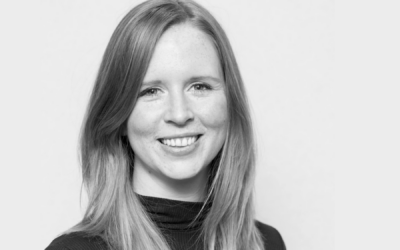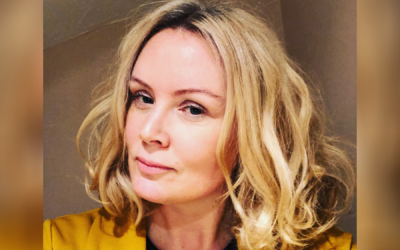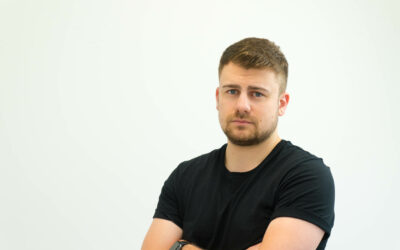Jim works with West Yorkshire-based Kingston Unity Friendly Society, a financial mutual specialising in savings and investments for adults and children.
The experienced chartered marketer has previously worked in A&R at Sony, before coming to marketing. He’s now Yorkshire Vice-Chair at the Chartered Institute of Marketing (CIM). In his role at Kingston Unity, Ker designs, implements and manages acquisition campaigns for B2B and B2C, as well as handling digital transformation.
We heard from Jim about the lessons he’s learnt.
Which single daily habit or practice could you not do without?
I categorically swear by starting my morning reading some form of content. Whether that’s a blog post, industry news or newsletter content from the likes of the CIM. It really gets me in the mindset for the day and you can pick up some really valuable trends and insights this way.
What’s been your luckiest break?
Probably my role with Kingston Unity. I was working as a marketing manager within the education sector before this and while it was a great role, I was keen to move into a sector that I found more challenging with Financial Services being my main aim.
This was no easy feat and I feel very fortunate to have been given the break despite having no previous experience within the Financial Services sector. I’ve been very well supported since then and very fortunate to have been able to capitalise on a number of opportunities.
What’s your best failure?
I wouldn’t call it my ‘best’ failure, but the one that stays with me the most is when I fell for an advertising scam for a fake publication. We purchased advertising space, invested in a designer, and spent a lot of time creating some great quality content for our audience. Unfortunately, I didn’t conduct enough due diligence on the advertiser, and they turned out to be a complete fraud.
I was embarrassed. Advertising budgets are tight for most businesses, so throwing money away like that was a big mistake on my part. Fortunately, the content didn’t go to waste and we were able to successfully circulate what was a fantastic piece of writing that was broken down into a bitesize series and circulated to our existing customer base via email content and social channels.
The content was well-received and supported our retention efforts. I think the big lesson here is that you should always learn from a mistake and adapt to failures. Simply accepting it and moving on could be your second mistake. Managing the change and evolving disaster into an advantage is a great skill to be able to master and one I’ve been working to improve since I learnt its advantages.
What is the best investment you’ve ever made, either financial or time?
Without a doubt my CIM qualifications. My education background before these has nothing to do with marketing. My first degree is actually in music!
I took the plunge and personally invested in my CIM Level 4 Certificate in Professional Marketing. This was a fantastic way into the industry and really helped me upskill in the key areas that I needed to move forward with my new career ambitions. Since then I’ve moved on to achieve my CIM Level 6 Diploma in Professional Marketing and I’m considering my CIM Level 7 Postgraduate Diploma in Professional Marketing in the not too distant future.
Which book would you recommend others to read and why?
Where do I start!?
I would certainly recommend ‘The Day After Tomorrow’ by Peter Hinssen. It’s got nothing to do with an apocalyptic winter, you’ll be pleased to know. Instead, it explores some of the upcoming technologies and ideas that we are beginning to see unfold in our working lives such as Blockchain and the concept of the fourth industrial revolution.
Some of the ideas in this book, and how the rate of these innovations risks making so many well-known brands incumbent, really blew my mind. The book made me realise how important it is for businesses to consistently look at the next option for blue sky thinking or risk falling out of favour with the market.
I would also recommend Seth Goodwin’s ‘Purple Cow’. I love Seth’s no-nonsense style of writing. It’s always a really refreshing take on the state of marketing and this book is no exception. The thinking within this book is something I always have as a back-pocket question when I’m working on new projects and campaigns.
What one piece of advice would you give your 21-year-old self?
You’re not as clever as you think you are, and if you do think that you’ll miss out on some of the most important lessons in your career. You can always learn something from others. Even if that something is how you wouldn’t respond to a situation like that yourself.
Never walk into somewhere thinking you know it all because it’s a cast-iron guarantee that you don’t. By listening and learning from others, you can only improve. If you’re the one doing all the talking, you’re missing out.
Who or what has had the single biggest influence on your working life?
My CIM network. The greatest element of CIM for me is the support and influence you can find within a network of likeminded individuals. I tap into it every day.
Tell us something about you that would surprise people.
Outside of my working life, I like to keep myself busy. I’m a 3rd Dan Black Belt in Jujitsu and regularly train. I also play guitar in a band based in Manchester called Circus Wolves. We’ve just signed a publishing deal actually, so watch this space!
How will the COVID crisis change work for the better?
This is a really interesting question. There’s still a lot of challenge coming our way, I feel. However, when discussing this with others there’s a general consensus that our previous assumptions of the working week have changed for the better.
Flexible working used to be seen as a bolt-on benefit that many businesses would promote. However, due to Covid, most businesses within the UK have had to adopt and invest in infrastructure to make flexible working accessible for all. This means the claim of flexible working should be much more achievable for many and this in turn will support the UK workforce when it comes to the all-important work-life balance.
On top of this, the required investment in digital infrastructure has certainly paved the way for more digital-first innovations in many businesses that were at risk of becoming laggards to smaller, more agile and forward-thinking competitors. Thanks to this investment in more efficient IT services and digital infrastructures, the opportunities for greater exploration of digital are there with many companies beginning to understand the need for investment in these areas, whereas previously, the “way it’s always been done” took precedence.
What does success look like to you?
Success to me is the ability to influence and help others without actively pursuing that goal every day. If my actions and activities can help other marketers with their careers, I would consider myself successful in my role as a marketing professional.
Your day-to-day activities are obviously essential, but if you are able to be in a position where someone is more successful than they were yesterday because of your actions, then that’s a huge win in my eyes.











